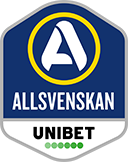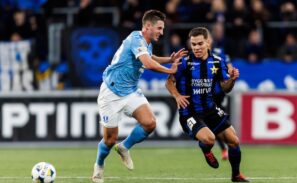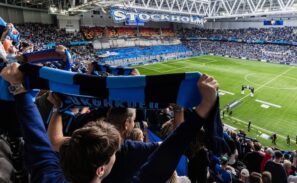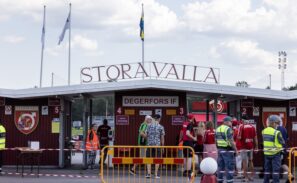The SLO´s of the Swedish elite clubs met in the three days for further training with the main focus on future development within the SLO role, supporters’ commitment and the public’s view of football.
“We’re getting a lot of energy these days. This is a group where everybody has different backgrounds but everyone are passionate about contributing to a better atmosphere in our stands”, says Kaveh Sarvari, event and private market manager, and also responsible for the SLO role at Swedish Proffessional Football Leagues.
The training is held every year for the elite clubs’ Supporter Liaison Officers (SLOs). During a normal year on two separate occasions. Översättningsresultat A total of 27 participants (20 from the Allsvenskan and 7 from the Superettan) were on site for three days of training, of which the first day was dedicated to the SLOs who had not previously been attending the education.
A Supporter Liaison Officer (SLO) is a supporter competence and service function within the clubs. The SLO are working as a neutral link between the club, the supporter movement, authorities and more, and is tasked with working to strengthen dialogue, conflict reduction, culture building, organizing and disseminating knowledge between the different stakeholders.
The SLOs initially gained an insight into Swedish football organization and into the activities of Swedish Proffessional Football Leagues – in particular the event, private market and SLO issues.
Beatrice Clarke, responsible for sustainability issues at Swedish Proffessional Football Leagues, then held a session where all participants had to work with their own history and future development.
On Sunday, the remaining SLOs joined, who had previously participated in the introduction day, and after a presentation round, Aron Lavesson from Tollare Folk High School took over and then held training sessions on Teambuilding and project management – in order to achieve change using the LFA model (The Logical Framework Approach).
Some of the main problems that the SLOs highlighted and applied the LFA model to were:
- The public view of football
- Lack of understanding of the SLO role
- Audience loss due to Covid-19
“These meetings are important. There are occations where everyone opens up and shares their experiences to the group. The SLO role is sometimes stressful. It is therefore also a place where many also find support in difficult issues. We are constantly trying to create an atmosphere where our SLOs thrive and trust each other, and these opportunities are a key to that”, says Kaveh Sarvari.
“Trust, integrity, knowledge and contact with the supporter environment are important keys to success in the role.”

During the training, the group was also visited by Jakob Uddeholt who spoke about his personal journey through supporter and club team culture, as well as his development journey from SLO in Hammarby to Integrity Officer at Riksidrottsförbundet, where he currently works as a coordinator in match fixing issues. The lecture was about everything from supporter environments, audience recruitment, and how the club reversed the negative trend that the club was in before.
The last day was devoted to a lecture by Dr Martha Newson at the Universities of Oxford and Kent. The lecture was about group psychology in a historical context and nowadays connected to supporters / groups around football.
“The SLOs have a great will and knowledge of the supporter culture. We are convinced that their work and skills around the supporter culture will help us develop the atmosphere in our stands”, concludes Kaveh Sarvari.















